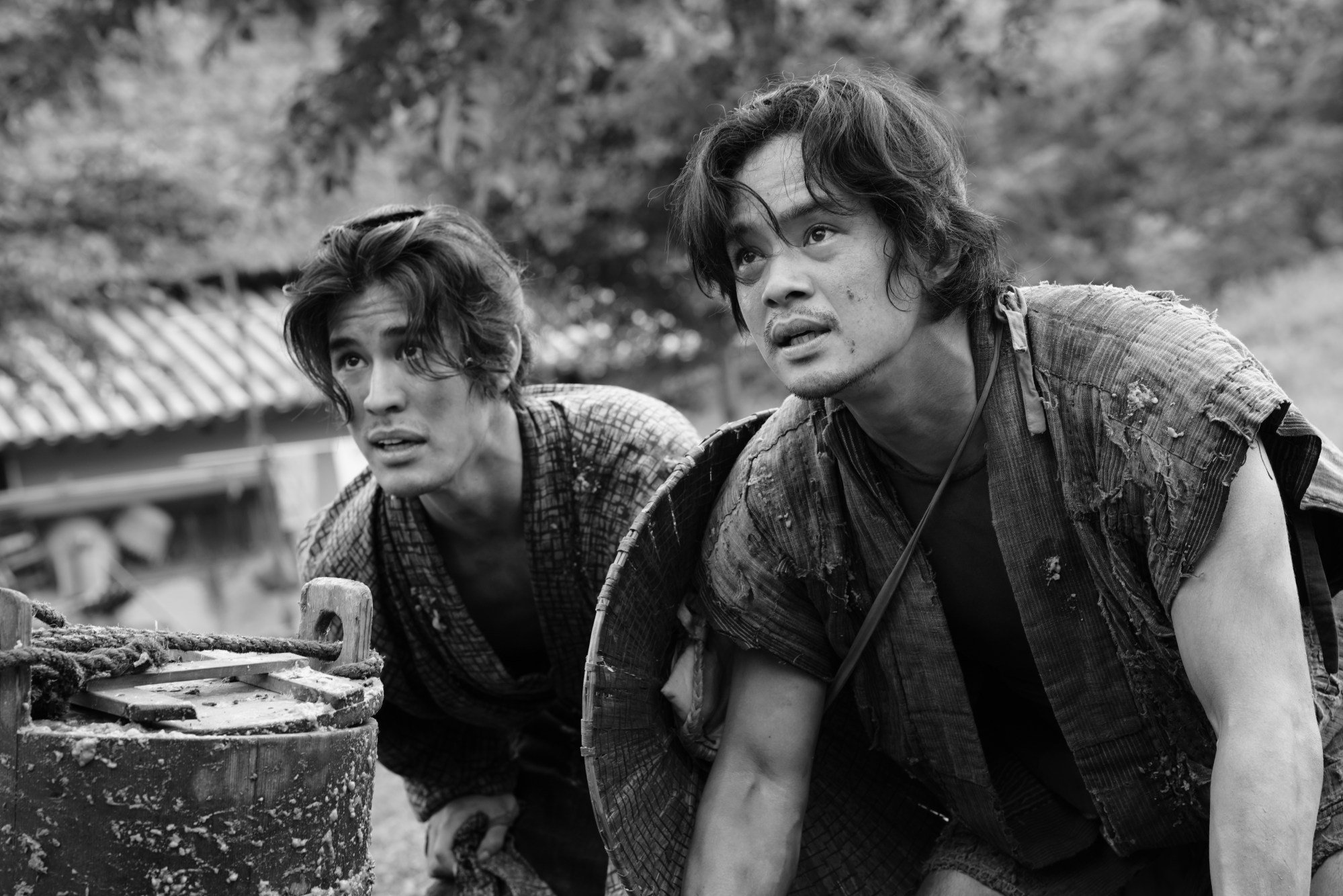4/5 stars
In 1977, Japanese author Taro Gomi published his seminal children’s book Everyone Poops, in which a wide assortment of animals are shown defecating.
The book goes on to introduce a young human child, who is similarly bound by the obligations of his digestive system. Big or small, young or old, rich or poor, everyone poops – a wondrously simplistic message that director Junji Sakamoto reiterates in his latest movie, Okiku and the World.
Set in the mid-19th century, at the end of Japan’s Tokugawa period, the film is shot in stark black and white and framed in 4:3 academy ratio.
It charts the unlikely courtship between Chuji (Kanichiro Sato), a trainee manure salesman, and Okiku (Haru Kuroki), daughter of a disgraced samurai (Renji Ishibashi).
Because of her father’s lapsed social status, Okiku now lives in a humble wooden row house, with a leaky roof and access only to an overflowing communal latrine.
Nevertheless, the once respectable young woman is determined to uphold the disciplines of her class, dressing in full kimono, speaking with elevated honorifics and generally maintaining an air of dignity at odds with her impoverished circumstances.
These invisible social barriers are challenged further when Chuji catches her eye.
His daily routine consists of scooping out the contents of the cesspools behind the neighbourhood’s shared facilities, and ferrying buckets of excrement to the next prefecture, where they are sold to farmers as manure.

As Chuji learns the ropes from his superior Yasuke (played by Sosuke Ikematsu), Sakamoto treats his audience to an unflinching tour of the waste disposal cycle – so vividly illustrated its pungency almost emanates from the screen.
Despite Chuji being perpetually smeared in fecal matter, Okiku’s more primal urges threaten to get the better of her. Her attraction to Chuji forces her to question everything about the social hierarchy she holds so dear, and to ask herself what is more important: clinging to a past that no longer exists or pursuing a happy future in her new surroundings.
Unfortunately, just as Okiku begins to open up to the notion of a fulfilling life in the gutter of society, her father’s past catches up with them in unexpected and violent ways, forcing Okiku once again to adapt to unforeseen challenges.

Kuroki makes for a radiantly tragic heroine, who appears to have stepped straight out of a Kenji Mizuguchi film.
It is Sakamoto who deserves real praise, however, for his playful, yet fully immersive reconstruction of a period where social status dictated everything, and a society that fought defiantly against the truth that no matter who you are or where you are from, everyone poops.

